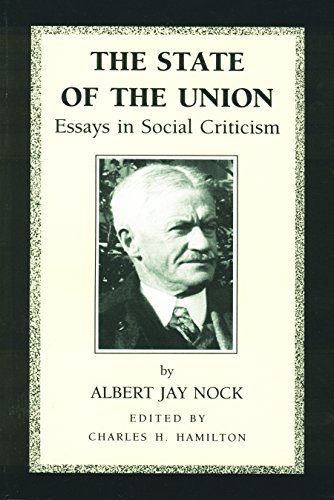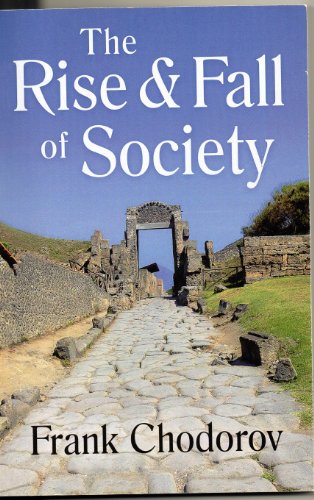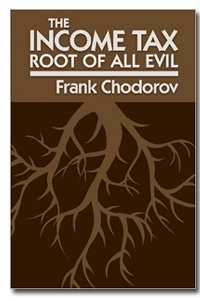This article is excerpted from chapter 14 of Out of Step (1962). An MP3 audio file of this article, narrated by Steven Ng, is available for download.
In New York, in the fall of 1936, I happened in one night at the Players Club. As I sat at a table with a couple of men, I noticed a dignified, elderly gentleman playing pool. He was very deliberate – painfully so to his opponent – in the selection of his shots, and quite accurate, too. At the end of the game he came over to our table, on request, and I was introduced to Albert Jay Nock. I had read much of his writings, in his books and in the old Freeman and was thoroughly in tune with many of his ideas, which he seemed to sense; we hit it off from the start, and until his death in 1945 we exchanged views and became as friendly as one could be with this reserved though companionable gentleman.
“I have led a singularly uneventful life, largely solitary, have had little to do with the great … and no part whatever in their affairs, or for that matter, in any other affairs.” So wrote Albert Jay Nock in the preface to his last book, Memoirs of a Superfluous Man. He wasn’t being modest; he meant it. And he did not believe anybody would be interested in reading about a man who had assiduously avoided making money or acquiring fame or taking part in the current of events. All he had ever tried to do was to get the most out of life in the ways he had found most pleasurable. He was an intellectual hedonist, entirely superfluous in the utilitarian environment in which he had lived.
 Out of Step
Best Price: $35.00
Buy New $15.95
(as of 10:41 UTC - Details)
Out of Step
Best Price: $35.00
Buy New $15.95
(as of 10:41 UTC - Details)
Therefore, he repeatedly refused to do the autobiography that William Harlowe Briggs, editor for Harper and Brothers, had been asking for. He had always shunned publicity – never gave a word to Who’s Who – and saw no reason at this late date to let a morbidly curious public in on his personal affairs. But Briggs won him over to the project by referring to an essay on autobiographical writing which Nock had published some time before. The only good purpose that an autobiography could serve, wrote Nock, was to record whatever philosophy the author had acquired on his way through life; if in so doing he found it necessary to relate experiences that had brought him to that line of thought, then it is permissible to throw them in; but to parade before the public what is none of their business is vulgar.
Thus came his brilliant “autobiography of ideas.” Every time Nock brought him a chapter, Briggs told me, he would say, “I don’t know why you want to publish this, Bill, for I am sure you will lose your shirt on it.” The editor knew better. His obvious motive was to get another book – probably the last, for Nock had already reached the three-score-and-ten mark – by perhaps the finest stylist in twentieth century American literature. The book has had a better sale than any of his previous books, even though every line of it is critical of the prevailing “climate of thought.”
Nock was an individualist, and he got that way not as the result of study but by force of temperament. As he would put it, the “furniture” of his mind was so arranged because no other arrangement would fit his mind. A man thinks what he is, Nock would say, and no amount of education can make him think otherwise; the only function that education can perform is to give him the tools with which to bring out of him what “he already knows!” He would have no truck with the doctrine of environmentalism, which he described as a false god set up by self-appointed and self-centered priests.
 Memoirs of a Superfluo...
Check Amazon for Pricing.
Memoirs of a Superfluo...
Check Amazon for Pricing.
He took to laissez faire economics, not because of its utilitarian support, but because of his abhorrence of political intervention. He was an anti-statist because he revolted at the vulgarism of politics and its devotees; in his classic, Our Enemy the State, he likens the state to a “professional criminal class.” He scorned reform movements because they all involve the use of political power which, on examination, will be found to be at the bottom of the condition the reformers would correct. He was for letting people alone because only under a condition of freedom could they improve themselves, if they have any capacity for improvement in them.
From this foreshortened description of his philosophy, one might infer that Nock was a crotchety old fellow, hard to get along with. Far from it. In a crowd, to be sure, he was distinguishable only by his infinite capacity for listening. He was too considerate to refute any statement, even a palpably false one, and too self-respecting to get into a controversy; “never complain, never explain, never argue,” he often said, “and you will get more fun out of life.”
It was only when you got him alone that you got a true taste of Nock, and I had the good fortune to meet him frequently during his last ten years on this earth. Over a meal – I was usually ready for coffee before he had finished his soup – he would regale you with bits of history that threw light on the events of the day, or quote from the classics a passage currently applicable, or take all the glory out of a “name” character with a pithy, statement of fact. He is gone ten years, and hardly a day passes but that some headline calls to mind an apropos remark he made as we lolled in the lobby of his hotel. He was a library of knowledge and a fount of wisdom, and if you were a kindred spirit you could have your pick of both.
His gift for parable was extraordinary. Those who are acquainted with his writings know how he could short-circuit a lot of logic-chopping by the use of an apt story; he spoke as he wrote.
 Our Enemy, the State
Best Price: $5.90
(as of 01:45 UTC - Details)
Our Enemy, the State
Best Price: $5.90
(as of 01:45 UTC - Details)
One night, during the war, a group of superpatriots were expounding the theory of innate German bestiality and stressing the need of digging our national heel into the lot. Nock, as usual, said nothing. Finally, somebody called for his opinion. He allowed that he knew nothing of the subject under discussion, but begged leave to tell of an experience he had had in a small German town some years before the war.
While waiting for the stationmaster to serve him, he picked up a historical booklet about the town. It was written in alt hoch Deutsch, which is to modern German about what Chaucer is to modern English. In due time the stationmaster turned to Nock and asked whether he was an American. Assured that this was so, the man expressed astonishment; for he had never met an American scholar, let alone one who could negotiate ancient German.
As a result of this chance incident, Nock was lionized during the few days he remained in the town. “In France and England,” Nock concluded, ” I never knew of scholarship being so highly regarded.” The point was clear. There was no more talk of exterminating the German people.
What Wasn’t Tabu and What Was
His stock of illustrative matter was garnered not only from a lifetime of travel and interesting associations, but also from the literature of the three “dead” languages, which to him were quite alive, to say nothing of the French, German and English. One evening he broke off in the middle of a sentence to cast an appreciative eye on a passing female. I observed that it was about time he had stopped looking. His reply was a passage from the Psalms of David, in Hebrew, referring to the lure of feminine pulchritude.
What did he talk about? Everything, from good eating to literature, from politics to manners in the tenth century. One subject was, by tacit consent, tabu; that was anything biographical. He would not hesitate to bring in, whenever it was necessary to the point he was making, some detail of his life, even an intimacy; but it never occurred to either of us to follow that thread. He was a man about whom you never asked anything.
 The State of the Union...
Best Price: $2.57
Buy New $6.26
(as of 11:13 UTC - Details)
The State of the Union...
Best Price: $2.57
Buy New $6.26
(as of 11:13 UTC - Details)
It was only after I was appointed administrator of his estate that I learned of the existence of two full-grown and well-educated sons. By the way, his “estate” consisted of some clothes, books, and uncollected royalties in the amount of $1300. Yet, he had travelled extensively and lived reasonably well.
Aim for the Morons
Nock’s brand of individualism came out in full panoply when he discussed education, a subject in which he was keenly interested. He insisted that no fault with public education can be found if the underlying principle of modern democracy is accepted as an axiom. That principle holds that not only are we born equal in law, but that we are also endowed with equal capacities; it follows that we are equally and perhaps indefinitely perfectible; all we need to prove this are equal educational advantages. Public education for all, then, is the way to the perfect society.
But, in point of fact, we find considerable differences in the mental capacities of individuals, and these differences make the application of the democratic principle difficult. Yet we are dedicated to the principle and cannot abandon or even modify it. The best we can do under the circumstances is to fit the standard of education to the lowest common denominator, and to keep on lowering it as more and more are invited or forced into the school system. It would be undemocratic to set the standard above the reach of the most unfortunate moron.
Everybody can be trained to do something, and so education under the democratic principle had to become utilitarian. And that fits in with the laudable idea that every child is born to enjoy a larger share of the material things of this life than did his father. Therefore, the goal of democratic education must be to fit the future citizenry for some trade or profession, and courses in carpentry or domestic science have become infinitely more important in the curriculum than courses in Latin or logic.
 Fugitive Essays: Selec...
Best Price: $1.48
Buy New $13.00
(as of 06:20 UTC - Details)
Fugitive Essays: Selec...
Best Price: $1.48
Buy New $13.00
(as of 06:20 UTC - Details)
But where does that leave the mind that is capable of learning? In the Grand Tradition, said Nock, education was geared to that mind only; the standard was set for it; and if one could not reach the heights, one was not educable, and that was the end of it. Though he did not belong in the select circle, he could be a very useful citizen, and lead a very happy life. In a material way, indeed, the non-educable were likely to have the advantage over the others; Spinoza, a highly educated man, was a poor lens grinder.
The object of education in the Grand Tradition was not to train technicians but to pick out of the ruck those who were endowed with questing minds. It was quite undemocratic, to be sure, in that it took cognizance of an educable elite. For that minority breed the democratic system has no place, and anyone suffering from intellectual curiosity is compelled to get his education in any way that he can find outside that system.
It will be seen that an evening with Nock on education was stimulating, especially since the conversation was embellished with anecdotes from the education of Rabelais (whose life inspired two books by Nock) or illustrations from his own college career. But if you thought that Nock had any idea of “doing something about it” you were soon set straight. “Things are as they are and will be as they will be,” and nothing could be done to change the course of events, nor even tried. After all, the educable will get their education, despite democracy, because they cannot help it. Any attempt to reform the democratic educational system is both presumptuous and hopeless.
“Why, then,” I asked him once as he was setting out on a lecture tour, “do you lecture? Why do you write?” His answer: “A fellow does what he has to do.”
If he had a favorite topic, it was his theory of political organization. He held that there is a basic difference between government and state, and it is a mistake to use the words interchangeably. The one is an institution arising from the needs of society; its function is to protect the individual from encroachment on the rights that inhere in him by virtue of existence; its only business is the administration of justice.
 The Rise and Fall of S...
Best Price: $10.00
(as of 12:10 UTC - Details)
The Rise and Fall of S...
Best Price: $10.00
(as of 12:10 UTC - Details)
On the other hand, the state is an antisocial organization, originating in conquest and concerned only with confiscating production. The state began with the practice of nomadic tribes of swooping down on some peaceful, productive community, confiscating the movable wealth around, and, after slaying the less productive inhabitants, carrying off those who could be put to use, including women; later on, the raiding tribes, sometimes by invitation, would settle down among the producers as “protectors” and administrators, collecting tribute for their pains.
Sometimes a merger between the invaders and their subjects would take place, even by marriage, and a nation was born; but the instruments of confiscation were continued, and those who inherited them became the state.
Wouldn’t Punch a Clock
This is, in a way, an economic theory of political institutions. There are two ways of making a living, Nock explained. One is the economic means, the other the political means. The first consists of the application of human effort to raw materials so as to bring into being things that people want; the second is the confiscation of the rightful property of others.
The state is that group of people, who having got hold of the machinery of compulsion, legally or otherwise, use it to better their circumstances; that is the political means. Nock would hasten to explain that the state consists not only of politicians, but also those who make use of the politicians for their own ends; that would include those we call pressure groups, lobbyists and all who wrangle special privileges out of the politicians. All the injustices that plague “advanced” societies, he maintained, are traceable to the workings of the state organizations that attach themselves to these societies.
This differentiation between state and government was set down formally in his Our Enemy the State, which originated as a series of lectures to a class in advanced history at Columbia University. (Incidentally, he refused the offer of a professorship at this institution because he did not think he could “punch a clock.”) In private conversation he would enrich the theory with historical anecdotes and with references to living personalities which could hardly be put in print. The book handles the subject of the development of the American State rather gingerly; in conversation he could be more blunt.
 Income Tax: The Root o...
Best Price: $14.29
(as of 07:00 UTC - Details)
Nock Bettered Nock
Income Tax: The Root o...
Best Price: $14.29
(as of 07:00 UTC - Details)
Nock Bettered Nock
He delighted in explaining the organization of many American Indian tribes, in which the prevailing justice and order indicated that a government, not a state, was on the job; or he would go to the Bible to show how the nomadic Israelites set themselves up in the state business by raiding villages on the way to the Promised Land. The Bible always stood him in good stead; he had been a minister in the Episcopalian Church.
To sum it up, Nock was the most civilized man I ever knew. He was knowledgeable but never pedantic, reserved but companionable, cosmopolitan in his tastes and, above all, a gentleman to whom it never occurred to inflict hurt on any man. He avoided the mass-mind, not only because he found it very uninteresting, but because he thought nothing could be done to improve it. If there was to be any improvement in society it would have to come by way of improvement in the individuals who compose it; for, in the final analysis, society is only an agglomeration of individuals, not an entity in itself. So Nock put in a lifetime bettering Nock, and since he had chosen writing as a profession he made a point of polishing his style to the point where it became the envy of his contemporaries.
Henry L. Mencken once said to him, “Nobody cares what you write; it’s how you write that interests everybody.” This is about the highest compliment one craftsman can pay to another. But this was not exactly true.
What Nock said was as interesting as the way he said it.
Reprinted from Mises.org.




